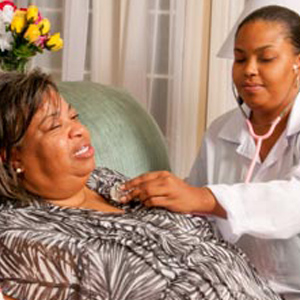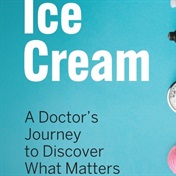
HAVE you ever wondered if you need to see a doctor even when you are not feeling ill? If you want to stay healthy in the long term, you don’t need to wait for an illness to strike before you go for a health checkup. There are some illnesses that you can prevent or manage more effectively if you go for regular annual health check-ups. According to Dr Busisiwe Khumalo, a physician at Leratong Hospital in Johannesburg, there are times where you feel fine, but it is still advisable to consult your doctor to be sure that your body is functioning optimally.
HEALTH DAMAGES
Regular checks will help you avoid future complications and health damages, according to Dr Busisiwe. “Going for screening for illnesses such as high blood pressure, TB (tuberculosis), HIV, blood sugar and high cholesterol level is very important. The only way to find out if you are infected with one of these sicknesses is to have them checked annually as they may hide many symptoms in the early stages,” she says. There are some illnesses which affect one gender more than the other but there are also some which are not gender specific such as the following:
¦ Sugar diabetes – You must test your blood sugar level for diabetes. If you have a body mass index of more than 25, which looks at your weight in accordance with your height, it means you are overweight, you have a higher risk of getting diabetes. You must be checked.
¦ Blood pressure – Having your blood pressure checked will depend on what the doctor finds on your initial results. If you have no complications, you may have it checked every three years. But if your results indicate that you are at risk, you will need to test more often. “If you have diabetes, heart disease, kidney problems, or any other condition, you may need to have your blood pressure checked more often,” she adds.
¦ Cholesterol and heart disease prevention – If you are a high risk for heart disease start getting checked as soon as possible, as early as the age of 20. If you have other complications like diabetes, kidney problems and heart disease, you will have to be checked more frequently.
¦ Bone mineral density (bmd) – A special scan can be done to find out your bone solidity, which determines how strong or fragile your bones are. Thin bones mean an increased risk of osteoporosis and taking the right medication to prevent this illness is imperative.
¦ HIV – It is important to test for HIV regularly to ensure that should you be infected, you are able to manage the illness and go on ARV treatment as soon as possible. The earlier HIV is detected, the easier it will be to manage so that you can continue living a healthy lifestyle.
¦ Physical exam – Check your height at every check-up. During your tests, your doctor will ask you about depression, alcohol and drug use, smoking habit, diet and exercise. Dental and eye exams also need to be done and if you have poor vision or dental problems, the doctor will recommend more regular checks.
TESTS FOR WOMEN
¦ Mammogram – This is a breast X-ray in which your breast is compressed between two plates, to test for developing breast cancer. Women over the age of 40 need to have annual mammograms. There are specialised mammography clinics and radiology departments in hospitals which deal with this. Remember, you need to check your own breasts monthly for changes to the skin, the position of the nipple, the shape or size of the breast or any lumps.
¦ Cervical cancer – You need to have a Pap Smear as it will assist in identifying any causes for concern in your cervix and surrounding areas. Your doctor will use a special stick or brush to collect a few cells from your cervix and send them to a laboratory where they will be examined under a microscope to determine whether there are any abnormal or potentially cancerous cells. You can be screened by your doctor, gynaecologist or at women’s health clinic. According to Dr Busisiwe, when you are sexually active you must check at least once a year. If you have a family history of cervical cancer or have a Pap Smear that shows signs of abnormal cervical cells, this puts you in a high risk group.
TESTS FOR MEN
¦ Prostate – Starting at the age of 50, males should have a digital exam of their prostate. “We use a gloved finger in the rectum to determine if there is any swelling of the prostate,” says Dr Busisiwe. Prostate specific antigen (PSA) is a blood test that can be helpful in detecting prostate cancer.
¦ Colon and rectum exam – Colorectal cancer almost always develops from abnormal growths in the colon or rectum. Colonoscopy and exams can find precancerous cells, so that they can be removed before they turn into cancer


















